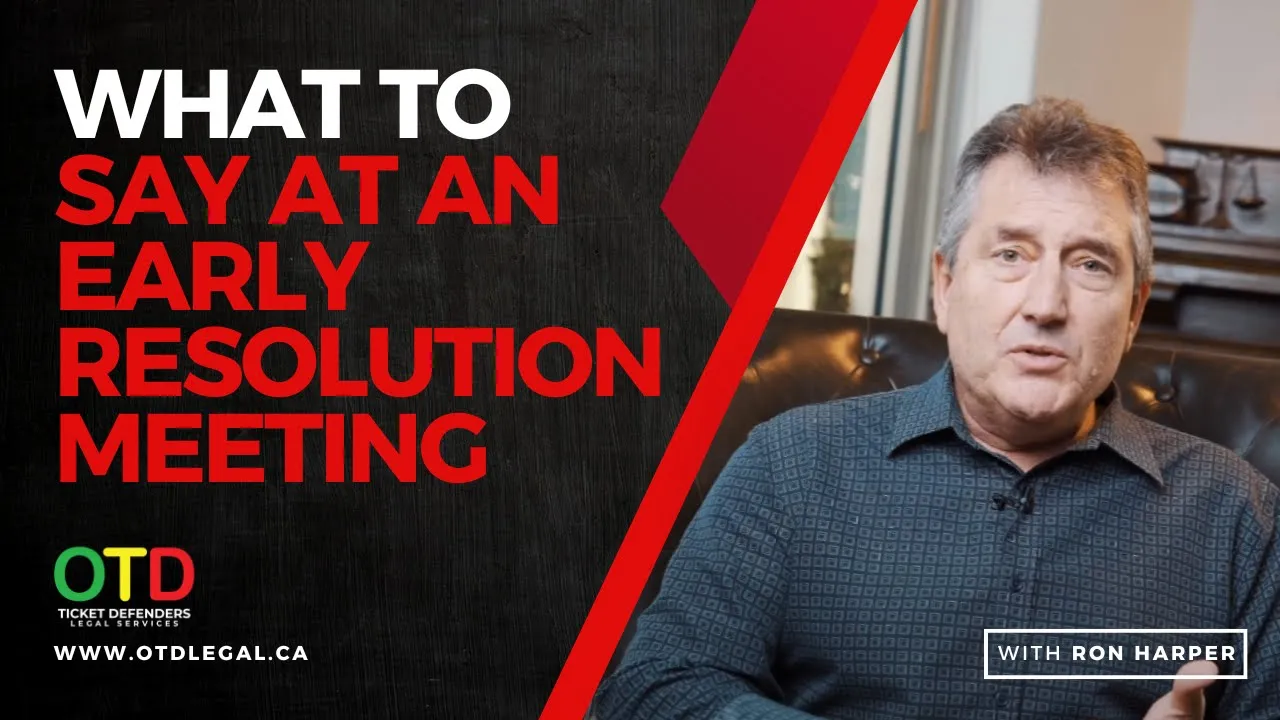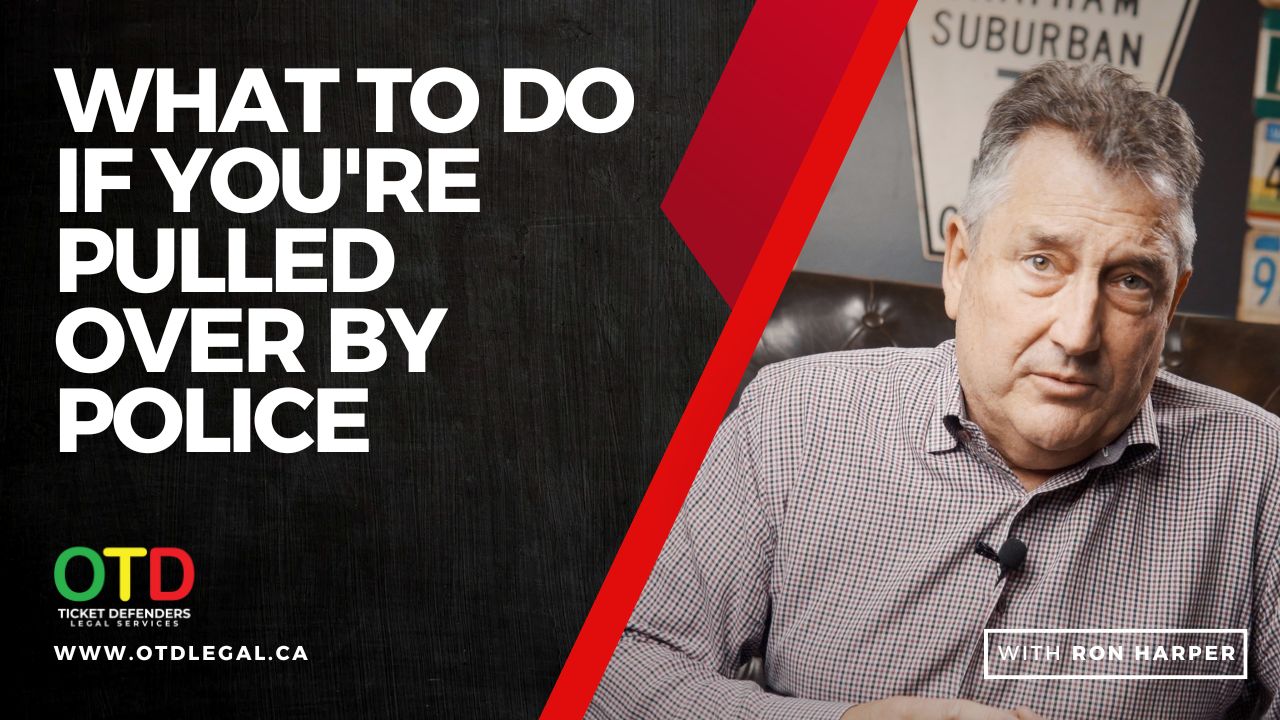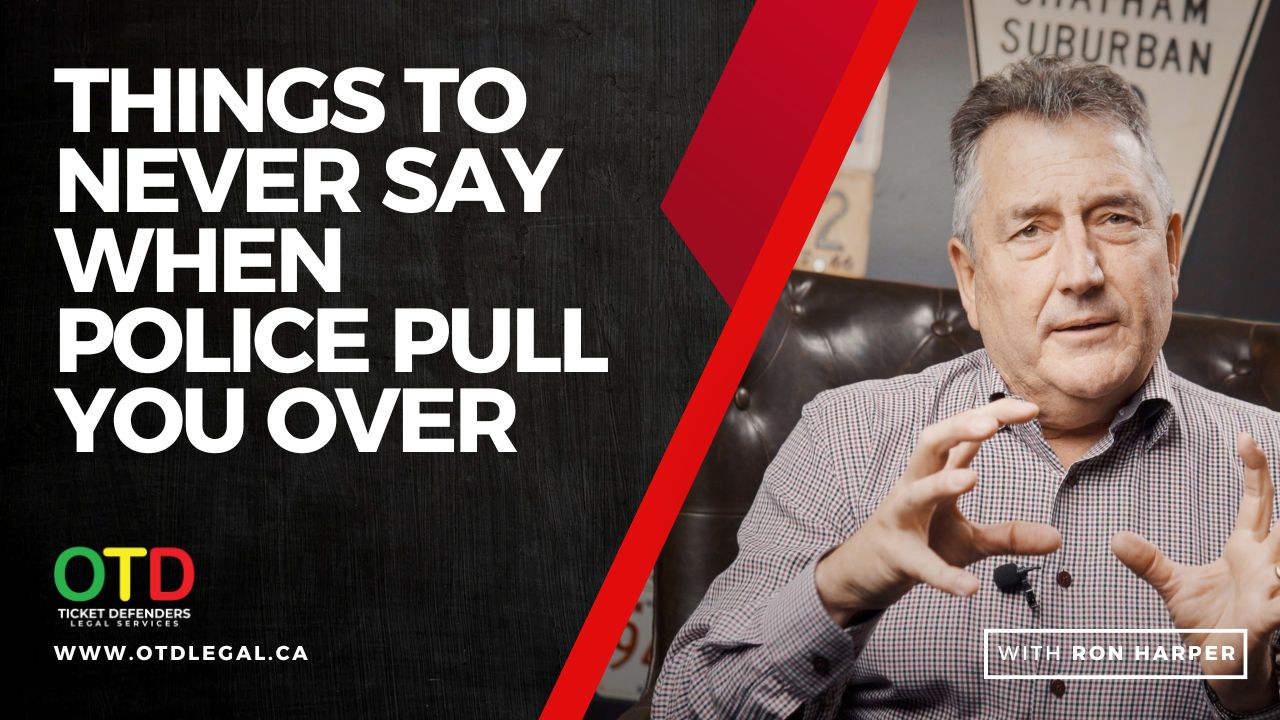When confronted with a traffic ticket, you may be wondering if it’s better to hire a paralegal or a lawyer for your defence. Both are licensed legal professionals, but they possess differing levels of education, experience, cost of representation, and areas of specialization. Understanding the distinctions can significantly impact the outcome of your case, and also help you make an informed decision.
The Legal Landscape in Canada
In Canada, a lawyer completes a three year law degree post-undergraduate studies. Their education covers a broad spectrum, including corporate and tax laws. This equips them with the knowledge to address various legal matters, not always with the depth needed for specific cases. In comparison, a paralegal’s education, while typically shorter, is intensely focused on specific legal services like provincial offences, which includes traffic violations.
The Specifics of Traffic Law
Traffic law is a specialized field that deals with offences ranging from speeding to careless driving and more. If you’re charged with a traffic ticket, you need to consider the nuances of the law. A licensed paralegal usually concentrates on these cases, often with considerable experience in the courtroom where your case may be heard. This experience translates into familiarity with the latest legal developments, the ins and outs of the courtroom, and often, a good rapport with prosecutors and judges.
Cost and Efficiency
Financial Considerations: Hiring a lawyer could mean higher fees due to the extensive groundwork required in familiarizing themselves with the specifics of traffic law and the relevant court for each case. Lawyers are versatile in legal matters but may be less efficient in traffic ticket defence, leading to higher costs passed on to you.
Efficiency: Paralegals often offer a more cost effective solution. Their day-to-day involvement in traffic ticket cases and continuous courtroom presence allows for a deeper understanding of the particulars involved, which can be leveraged to your financial advantage.
Choosing Your Defence
Weighing the options, you should seek a legal professional with direct experience relevant to your charges.
Legal Representation: Quality defence is characterized by a legal professional’s ability to advocate effectively on your behalf. Frequent courtroom attendance equips paralegals with real-time legislative updates that could be crucial in forming a solid defence strategy.
Finding the Right Fit: While both lawyers and paralegals are highly educated, their effectiveness in traffic court hinges on their familiarity with that particular legal environment and specific charges. Taking advantage of free consultations can help determine the best fit. Ask about their experience with traffic offences, the results they’ve achieved, and their approach to trial and resolution meetings.
Professional Licensing: In Canada, both lawyers and paralegals undergo rigorous education programs and licensing exams to ensure their competency. Confirm that your chosen professional is in good standing with the Law Society, which regulates the legal profession ensuring ethical practice and protecting public interest.
Success Rates: Look into the success rates of the professionals you consider. An experienced advocate with a record of successful outcomes can be the confidence you need to let your case be handled effectively.
In Summary
Choosing between hiring a lawyer or a paralegal when facing a traffic ticket involves assessing their areas of expertise, experience in traffic court, and the associated costs. Paralegals, with their specialized focus and frequent courtroom dealings, may present a more efficient and economical choice for defending traffic tickets.
Are paralegals in Ontario permitted to represent clients in court for traffic violations?
Yes, paralegals in Ontario are permitted to represent clients in court for traffic violations. They are regulated by the Law Society of Ontario and have the authority to advise and represent you at the Ontario Court of Justice for Provincial Offences Act matters.
How does the scope of practice for paralegals compare to lawyers when contesting tickets?
The scope of practice for paralegals when contesting traffic tickets is focused and limited to traffic court. Paralegals can represent you in court, file motions, and negotiate with prosecutors. Lawyers, however, have a broader scope of representation and can handle all aspects of criminal law, including serious offences beyond the traffic court.
Video Transcription:
Paralegal versus lawyer, who should be fighting your ticket? This is an important question to be asking. One of the first things you ought to be aware of is the distinction between a lawyer and a paralegal. Let’s first discuss what a lawyer is and why they exist.
Lawyers are trained in a variety of areas of law. They go to school for three years which is the equivalent of an undergraduate degree. In those three years, they are exposed to multiple areas of law in a very loose way. So they get exposed to The history of the law in that particular area and, and things like corporate law or, or tax law or things like that.
And it’s a very, very wide scope of what they’re going to be exposed to as a lawyer. It’s important to keep that in mind as you now turn the page towards what a paralegal is. A paralegal is also well educated, generally not as long as three years. However, you need to be aware that the scope of the education is very focused on what exactly a paralegal will be doing for you.
So there is a very intense focus on what a paralegal is educated in and what they will be dealing with. When you’re looking for a paralegal or lawyer to help you, turning the page back to what a lawyer may be doing. If you were to consider retaining a lawyer to deal with a highway traffic matter, you would be presenting a case.
Which is one that they’re not going to see every day. They’re going to see maybe once in a while. So what that lawyer would be obligated to do, would be to do the research from the ground up. That takes time. That is not something they’re going to do every day, and it’s certainly not something that’s readily available in a file someplace, or that a number, another member of their, their staff is going to be able to inform them on.
So there’s quite a bit of work in getting up to speed on what the current law is. The next thing that that particular lawyer would have to do would be to figure out where this court is. Usually the case is that they’re not going to that court every day. They do not know who the people are, and, unfortunately, when that happens, they’re not efficient.
And when they’re not efficient, the potential client is paying for that inefficiency. So they have to learn things kind of from the ground up. Whether it be the law. Or be in that courtroom. And it can be problematic in only this regard, it usually means it’s more expensive for that particular client.
When you deal with a paralegal, their focus has been that particular courtroom and in many of these cases, that particular charge is the intensity of what they do. And because they’re doing it on a daily basis they already have the law on hand. They know what happened in the law or at the Supreme Court of Canada the day before in real time.
They’re not redoing anything. That’s a very exciting way to practice because they know all the most recent changes and what’s going on. Further, that paralegal, because of that focus, they’re going to that court. They know the people in that particular courtroom. They see them every day. They’ve developed professional relationships with them, sometimes friendships, and they’ve also developed respect.
That court, that prosecutor, they know that particular practitioner. That particular paralegal is well known. And what I believe is it puts a client in that situation in a position of particular advantage. For that reason, they know you, they know how you advocate, they already know that you are a successful advocate.
They’ve seen you do that every day. And in addition to that, you are the benefactor of someone who has real time knowledge of what the law actually is at that moment. The net of all of that is, that service is provided and in a very efficient way to your pocketbook. It is far cheaper to engage a paralegal than a lawyer, significantly different than a lawyer.
A lawyer is going to charge very expensive fees. I’m not going to comment on whether it’s worth it or not. And many of these lawyers are my friends and colleagues. And I would hire lawyers in specific situations too. The right person for the job. But I would simply advocate, in a highway traffic setting, careless driving, speeding tickets, bodily harm situations when careless is involved, these are the types of things that you want somebody who’s very experienced. Very in tune with what’s going on day to day so that you can get the most help in the most efficient way saving your money and being successful just seems to be the right answer for me.







